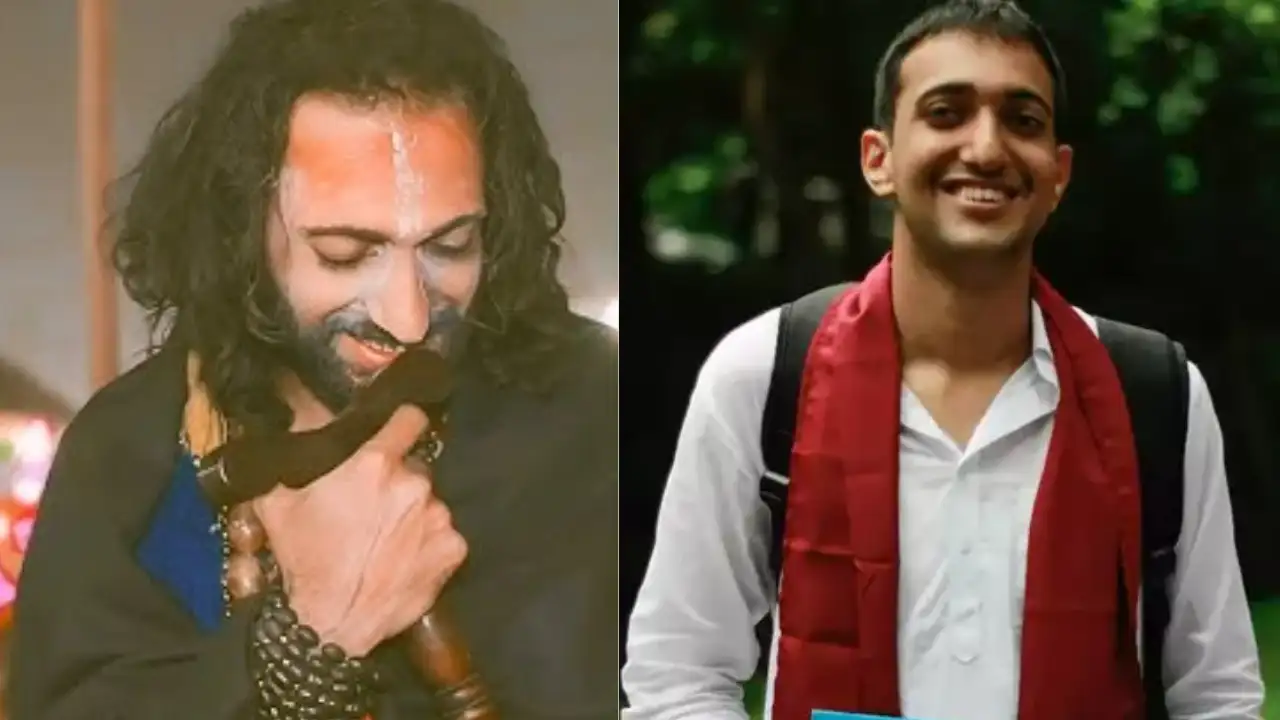
IIT Baba At Mahakumbh: How Unseen Scars Of Childhood Trauma Shaped His Mental Health?
Abhey Singh, popularly known as the IITian Baba, stunned many with his remarkable transformation from an aerospace engineer to a spiritual ascetic. Born in Haryana and an alumnus of IIT Bombay, he gained widespread attention after his interview at Maha Kumbh Mela revealed his unconventional journey from academia to devotion, sparking curiosity on social media.
Singh, who now has more than 300,000 followers on Instagram, was thrown out of the Juna Akhara camp after allegedly using abusive language against his guru, Mahant Someshwar Puri. In a viral video, he called his father "Hiranyakashyap" and his guru "pagal".
Singh also known as 'Engineer Baba', holds a degree in aerospace engineering from IIT Bombay. However, he abandoned science to explore spirituality. When questioned about his childhood, he reveals instances of domestic violence that happened at his place and the impact of constant fighting between his parents left on him, although he wasn't directly involved in that. To escape the chaos, he would lock himself in his room after school and study in peace.
Singh stated that his decision to not marry was also influenced by having been raised in such a way that he just didn't want to experience what he did at home. Thus, this young man's story highlights how trauma and dysfunctional parenting may result in severe psychological distress, exhibited as a form of either escapism, detachment, or self-isolation. It is a grim reminder that even those with the potential to do great things can fail without the emotional investment in oneself.
Childhood is often thought of as a foundation on which a human's life depends and develops into one of learning and emotional maturation. Clinical Psychologist, Mr. Ankur Kapur, Consultant at Artemis Hospitals explains, "Trauma during the critical developmental stages of life causes re-wiring of brain architecture, especially in areas responsible for emotional regulation and decision-making, including the amygdala, prefrontal cortex, and hippocampus." This rewiring predisposes an individual to mental health challenges, PTSD, depression, or anxiety disorders.
Such changes in children's behavior were proven through research to hamper the capacity of a person to cope with stress and create sound relationships. Lacking safety, as perceived in emotional terms, leads to maladaptive coping such as withdrawal, aggression, or substance use during childhood.
Ripple Effect of Parenting Styles
Parenting styles are critical in either mitigating or exacerbating the effects of childhood trauma. Supportive parenting equips the child with the resilience to overcome the challenges that lie ahead. Conversely, excessive criticism, emotional unavailability, or imposing unrealistic expectations can magnify the trauma.
For example, authoritarian parenting-high expectations and low emotional support-may make children feel inadequate. Permissive or neglectful parenting, on the other hand, leaves children without boundaries and emotional anchoring to support healthy development. According to Mr. Kapur, "Children flourish in settings where parents give structure and empathy. When either is lacking, the child's sense of safety and self-worth suffers.
One of the most poignant examples of the far-reaching consequences of childhood trauma is that of Abhay, whose case drew national attention. A young man, a promising student from one of India's most prestigious institutions, veered off his academic path and ultimately renounced societal norms. Known as the "IIT Bombay Baba," he attributed his downward spiral to unresolved childhood trauma.
While the exact nature of his experiences remains undisclosed, as per reports and speculations made, it would seem to be a poisonous mixture of parental pressure and emotional abandonment. Childhood trauma doesn't only affect emotions; it molds the brain. Chronic stress and adverse experiences interfere with the proper functioning of the critical brain regions:
Amygdala: Hyperactivity can lead to a hyper-vigilant state, causing individuals to be more susceptible to anxiety and fear.
Prefrontal Cortex: Poor decision-making and inability to control emotions are associated with alterations in this region.
Hippocampus: Shrinkage and reduced function in this area have been associated with memory problems and vulnerability to depression.
Such changes in the brain remind us why intervention needs to be early. Trauma is not a "phase" a child grows out of but rather continues to affect personality, behavior, and mental health well into adulthood.
How Early Intervention Could Have Changed 'IIT Baba's' Life?
The effects of childhood trauma lies in recognizing and addressing it early. As noted by psychologist Mr. Kapur, "Trauma-informed therapy, whether cognitive behavioral therapy or dialectical behavior therapy, seems to be pretty helpful in how a person actually starts processing their own experience and actually can build in more healthy ways to cope".
Parents also play a vital role in breaking cycles of trauma. An environment of emotional safety and open communication can make a huge difference in the mental health of a child. Simple gestures such as active listening, validation of feelings, and unconditional love can provide stability and support for children to thrive.
While therapy and supportive parenting are important, deeper societal changes are equally important. Schools, communities, and health care systems must work together to promote environments that focus on mental health. Education programs for healthy child-rearing practices and other resources for families in crisis prevent trauma before it happens.
Mr. Kapur concludes, "Breaking the chains of trauma starts with recognizing its existence and taking steps to heal—individually, within families, and as a society."
Get Latest News Live on Times Now along with Breaking News and Top Headlines from Mental Health, Health and around the world.
